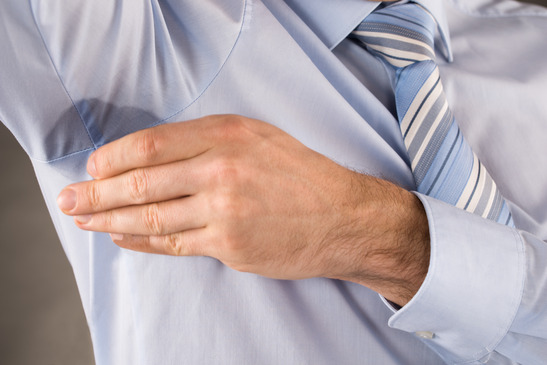The Sooner You Know About Hyperhidrosis The Better
 Our lives are normally very hectic and busy, and due to this reason, we sometimes forgo proper eating methods and simply consume food in a haphazard manner. However, this isn’t right and it could actually lead to problems with the digestive system. When this happens, you need to switch to healthier eating alternatives and habits so that you remain healthy even if you eat on the go.
Our lives are normally very hectic and busy, and due to this reason, we sometimes forgo proper eating methods and simply consume food in a haphazard manner. However, this isn’t right and it could actually lead to problems with the digestive system. When this happens, you need to switch to healthier eating alternatives and habits so that you remain healthy even if you eat on the go.
Here are five ways in which you can achieve this:
Is your sweating disrupting your daily routine? You could have a condition called hyperhidrosis which is often triggered by stress and results in the overproduction of sweat. It typically happens to people between the ages of 25 and 64, although younger people may be affected as well. If this sounds like you, learn the common symptoms and treatment to manage hyperhidrosis.
Common Symptoms
The main symptom of hyperhidrosis is excess sweat. It can be focalized—occurring in the feet, hands, face, armpits or other areas—or generalized, occurring over the whole body. Generalized hyperhidrosis is typically caused by an infection, chronic disease or an interruption in the processes that regulate hormones. Focalized hyperhidrosis is thought to have a genetic component, as often there is more than one person in the family with the condition.
Because hyperhidrosis causes a sheen of sweat on the hands, face, and other areas of the body, people with the condition may become self-conscious, especially in situations where touching is involved, such as hugging or handshaking. They may also avoid exercising, to avoid the embarrassment of excess sweat. In extreme cases, the condition can significantly impact a person’s ability to do their job.
Treatments Options
There are several treatments available for Hyperhidrosis, especially for Focalized Hyperhidrosis. They include the following:
Oral medications
These work by affecting the nerves that cause sweating. Side effects can include dry mouth, constipation, urinary difficulties, blurry vision and increased heart rate.
Surgical procedures
When other treatments fail to help, surgery may be necessary. By blocking the nerve receptors that cause sweating, doctors can help to reduce or eliminate the problem. Complications from surgery can include bleeding, infection and nerve damage.
Topical medications
These medications contain aluminum salts in higher concentrations than regular antiperspirants. They may cause burning or itching at the application site.
Botulinum Toxin A
This treatment involves injecting the toxin either in the armpit or palms. It’s only used for Focalized Hyperhidrosis. Side effects include pain and itching at the injection site, and headache.
Iontopheresis
This procedure involves using a medical device to pass a mild electrical current through water and the skin’s surface—utilizing shallow pans large enough for your hands or feet to fit in. With this method, no significant or serious side effects take place and the benefits are long-term, but you have to adhere to a maintenance schedule and the doctor recommended frequency is often once per week.
There is no way to prevent hyperhidrosis, however with proper treatment, the symptoms can be controlled, allowing the person affected to lead a full and productive life.
|